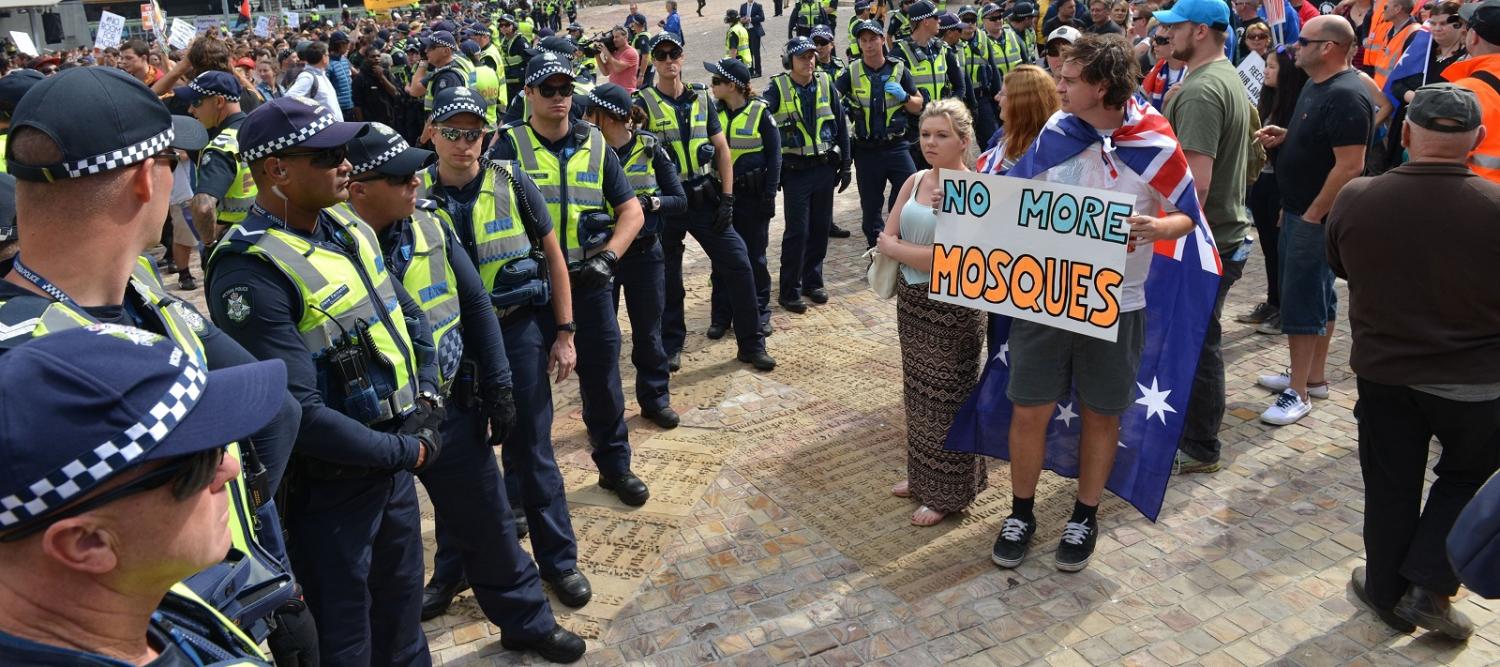Acts of violent extremism, such as the attacks in Barcelona earlier this month, are becoming a routine feature of the global security landscape. Such threats require little in the way of military infrastructure but are instead reliant upon a social capacity to fatally persuade individuals – often, but not always, young men – to believe in extremist values.
Like many governments around the world, Australia condemned the recent attacks in the strongest language and has turned its attentions to how it might address similar threats to Australia and in the region.
Addressing violent extremism involves not just combating it at the point where violent threats become imminent, but also preventing it at the earlier point where people become radicalised.
Recent research at Monash University’s Gender, Peace and Security research centre has focused with the role that women play in these processes.
In a pilot study conducted with 100 interviews and focus group discussions throughout Indonesia, the research has found that women play a crucial role in both preventing and combating violent extremism in their communities.
First, the research demonstrates that women are often ‘first responders’ to the possibilities of radicalisation within their communities. In families, schools, workplaces, community groups and religious centres, women play an important role in preventing and countering both the spread and persuasion of extremist ideologies.
Second, the experiences of women provide early warning signs of the spread of violent extremism. The introduction of social, political and legal restrictions on women’s freedom of movement, dress, access to public and community spaces (like mosques) and the use of derogatory language towards women is evidence of a move towards extremist views. Moreover, the marginalisation of women from social and political life allows those views to spread more readily.
Third, as a corollary, the push for – and protection of – gender equality including within religious communities is perhaps the most significant counter-narrative to extremist ideology.
So how can the Australian government ensure that its response to violent extremism is cognisant of these gender politics? We suggest there are at least three policy platforms to work with.
First, given counter terrorism/countering violent extremism policies provide the direct security response to emerging or imminent security threats, women’s voices, experiences and leadership must be considered in the design of these policies. Doing so will avoid dangerous and ill-informed gender stereotyping. Common pitfalls include assumptions of CVE roles according to gender such as men as perpetrator/women as victims, or men as public sphere actors and community leaders/women as domestic or passive actors. Similarly, the inclusion of women in policy making and the security sector will encourage a respectful partnership between women’s groups and policymakers. This may reduce the likelihood that women’s experiences, knowledge and skills will be instrumentalised or harmfully securitised in ways that serve the state’s interests but are harmful to the community and/or to women. Furthermore, women’s inclusion in policy making will provide a more nuanced view of social discourses. For example, women may attest to the role that religious counter-discourses and women religious leaders can play in supporting gender equality and preventing extremist beliefs in ways that are not otherwise identified or accessible to governments.
Second, we argue that Australia should develop a more robust and distinct preventing violent extremism (PVE) program that aims to support the existing capacities of - or mobilises - communities and individuals. As opposed to countering violent extremism (CVE) programs, we argue that this incorporates long-term, community driven, non-militarised support to provide early intervention to prevent radicalisation. This involves supporting women-led organisations to work with their community and providing resourcing that will scale-up existing successful activities. For example, the Women’s School for Peace in Poso in Central Sulawesi has developed a community warning system to prevent the escalation of inter-religious violence. Women-led organisations are not only well placed to monitor shifts towards extremism in local communities, but supporting them promotes gender equality and women’s equal roles in society.
Finally, the ‘gendering’ of these policies must be supported and aligned with Australia’s National Action Plan (NAP) on Women, Peace and Security (due to be redesigned in 2019). This plan provides the most significant policy framework to engage the role of women in peace and security issues. The second iteration of the NAP will need to promote alignment between its policy vision and all C/PVE policies.
Based upon the United Nations’ Security Council Resolutions (UNSCRs) on Women, Peace and Security, the NAP should explicitly outline the Government’s intentions to prevent and counter violent extremism at home and transnationally through strategies consistent with the UNSCRs. These include ensuring a gender-aware approach is adopted in all C/PVE policy making and a diverse cross-section of women’s voices are heard. This involves engaging with and expanding the emerging evidence-base on the relationships between women and C/PVE. It also requires understanding the unique ways that violent extremism undermines women’s security, rights and gender equality. As noted, it involves supporting the participation of women and women’s organisations to implement their PVE programing. Finally it requires Australia’s leadership to work in national, regional and global forums to promote gender equality and in doing so highlight the links between gender equality, and peace and security.

